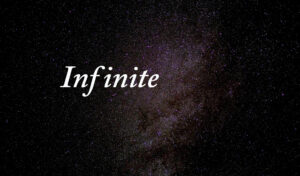It is because of the stress of different values in a civilisation. In most ancient societies, there was a stress on social order and preservation of the group life even if it needed the sacrifice of the individual’s wishes and desires. In modern societies the stress is on individual freedom, partly as a reaction and exhaustion to a long practice of sacrifice, renunciation, almost a tapasya that women have undergone. Selfishness is an extreme result of this reaction and the demand of an individualistic age. For the moment this is disconcerting but Nature will reset the balance, though not in the old way. The new way will be a suitable modification of what ancient India practiced in the joint family system. Obviously that has been broken due to its demerits. The new way will be the commune where families come together and support each other and jointly participate in the child’s holistic development as we see in the stories of Sri Krishna in Braj and Vrindavan. This will broaden a child’s outlook, provide the needed support that would allow individual space to women to progress along different lines and being a commune, prevent too much misuse of freedom. There is however one condition though. It is that the commune should be centered around a high, common, uplifting Ideal. It will be the modern version of Gurukula, the family of the Guru. Sri Aurobindo hints at it in his writing titled The Chariot of Jagannath.
‘Nobody knows the true form or design of the chariot of Jagannath, no artist of life is capable of drawing it. Hidden under many layers, this picture shines in the heart of the Universal Godhead. To manifest it, gradually through the effort of many divine Vibhutis, seers and creators, and establish it in the material world is God’s intention.
The real name of the chariot of Jagannath is not society but commune. Not a loose human association with diverse tendencies or merely a crowd but an unfettered indivisible organisation, the gnostic community created by delight and the unifying power of self-knowledge and divine knowledge.
Society (samāj) is the name given to the organisation, that device which allows a human collectivity to work together. By understanding the root of the word, we can also seize its meaning. The suffix sama means united, the root aj signifies to go, to run, to fight. Thousands of people come together for the sake of work and to satisfy their desires. They pursue numerous aims in the same field—who can come first? Who can get to the top?—and because of this there is struggle and competition, quarrel and fighting not only among themselves but with other societies as well. To bring about order into this chaos, obtain help and satisfy mental tendencies, various relations and ideals are established; the result is something temporary, incomplete and achieved with difficulty. This is the image of society, of the lower existence.
The inferior society is based upon division. A partial, uncertain and short-lived unity is constructed upon that division. The structure of the ideal society is entirely the opposite. Unity is the foundation; there is a play of differentiation, for the sake of multiform delight, not for division. In the society we find a hint of physical and mentally conceived unity arising from work; but unity based on the self is the soul of the spiritual commune.’
Until this happens, human beings will be torn between the needs of individual development and social pressures. But true parenthood where the mother spends time looking after her child is not born out of the social pressure but Nature’s instinct of maternal care with which most women are endowed with. But there is an increased pressure for women freedom which includes as an essential component, economic freedom. It is true that this creates challenges for parenting, especially single parenting due to divorce and other reasons. Worst is leaving the children in creches or workers at home wherein they pick up all kinds of things. Going back to the old way where women stayed at home and looked after children would not be the step forward nor will it be tenable any more. What is better is to find the right balance between work, home and most importantly personal individual growth which is not always easy especially in a hedonistic society that stresses on outer comforts and pleasures as a goal in itself and values outer achievements, wealth, position etc more than inner growth. Let us suppose this is a passing phase and women will be able to discover the right balance and society will allow a greater freedom and plasticity and the family system will give way to communes centered around a higher and nobler way of individual and collective life. Sri Aurobindo hints at it in one of his aphorism.
327—India had three fortresses of a communal life, the village community, the larger joint family and the orders of the Sannyasins; all these are broken or breaking with the stride of egoistic conceptions of social life; but is not this after all only the breaking of these imperfect moulds on the way to a larger and diviner communism?
328—The individual cannot be perfect until he has surrendered all he now calls himself to the divine Being. So also, until mankind gives all it has to God, never shall there be a perfected society.
Sri Aurobindo writes here in a clear and definite way what I tried to express before: no perfection can be attained so long as the government of the Supreme Lord is not recognised and admitted everywhere and in all things.
Liberty can only be manifested when all men know the liberty of the Supreme Lord.
Equality can only be manifested when all men become conscious of the Supreme Lord.
Fraternity can only be manifested when men feel that they are equally born of the Supreme Lord and one in His Oneness.
9 February 1970
Affectionately,
Alok Da



